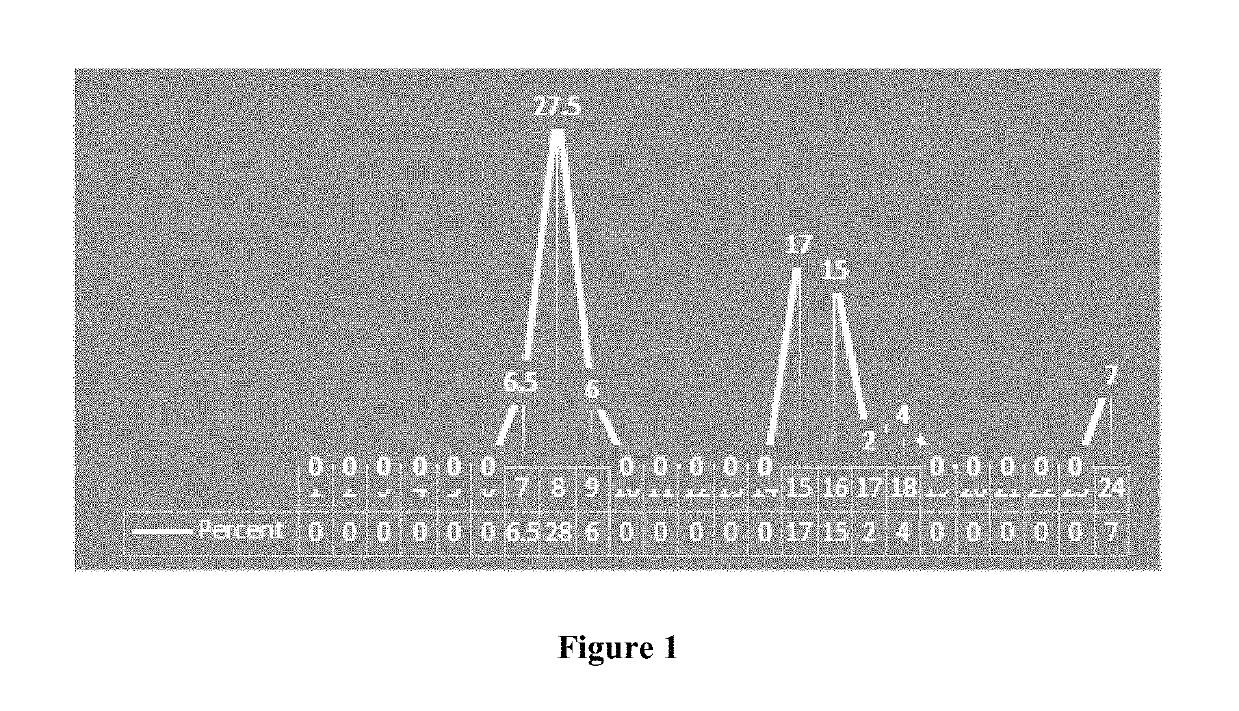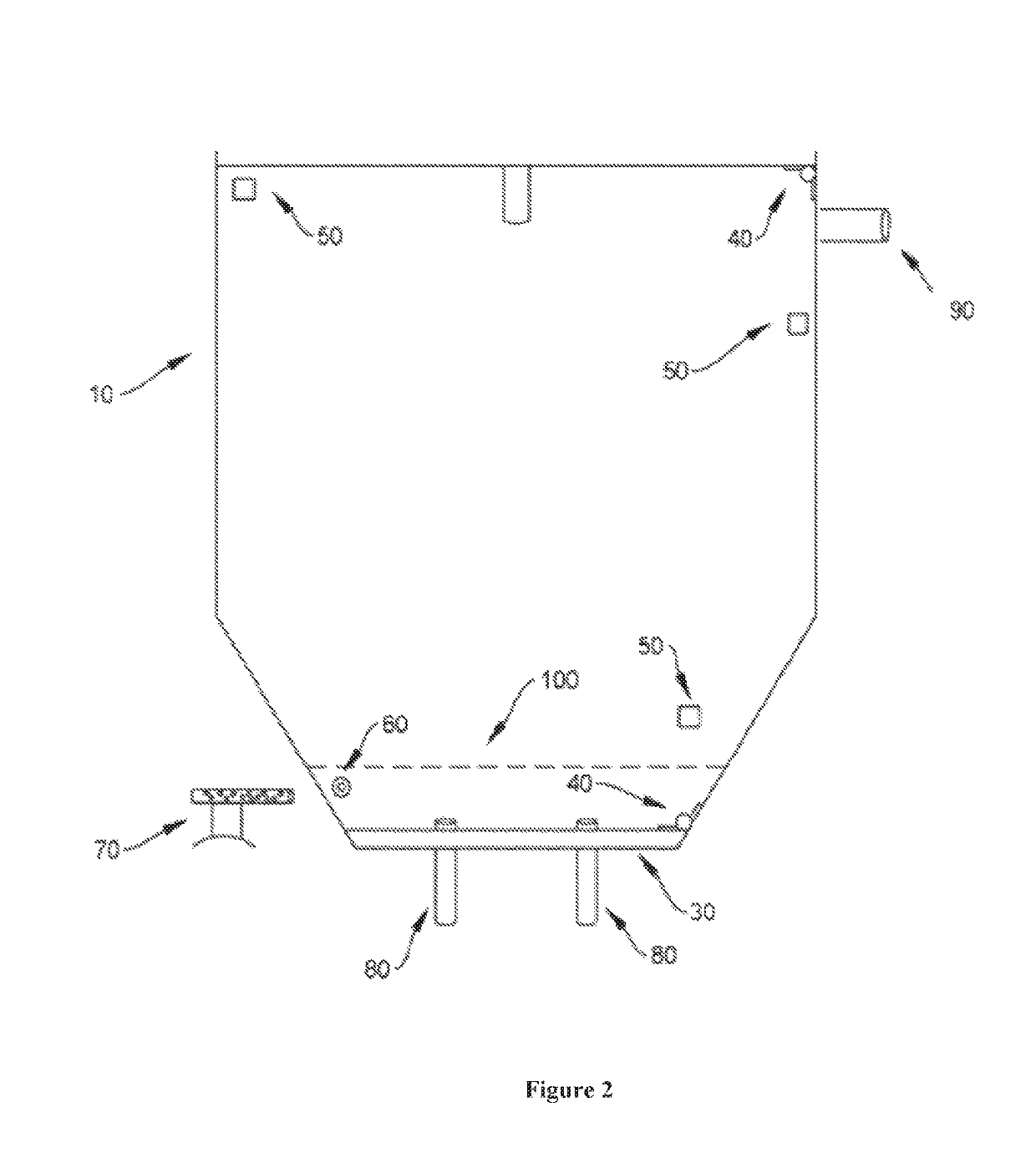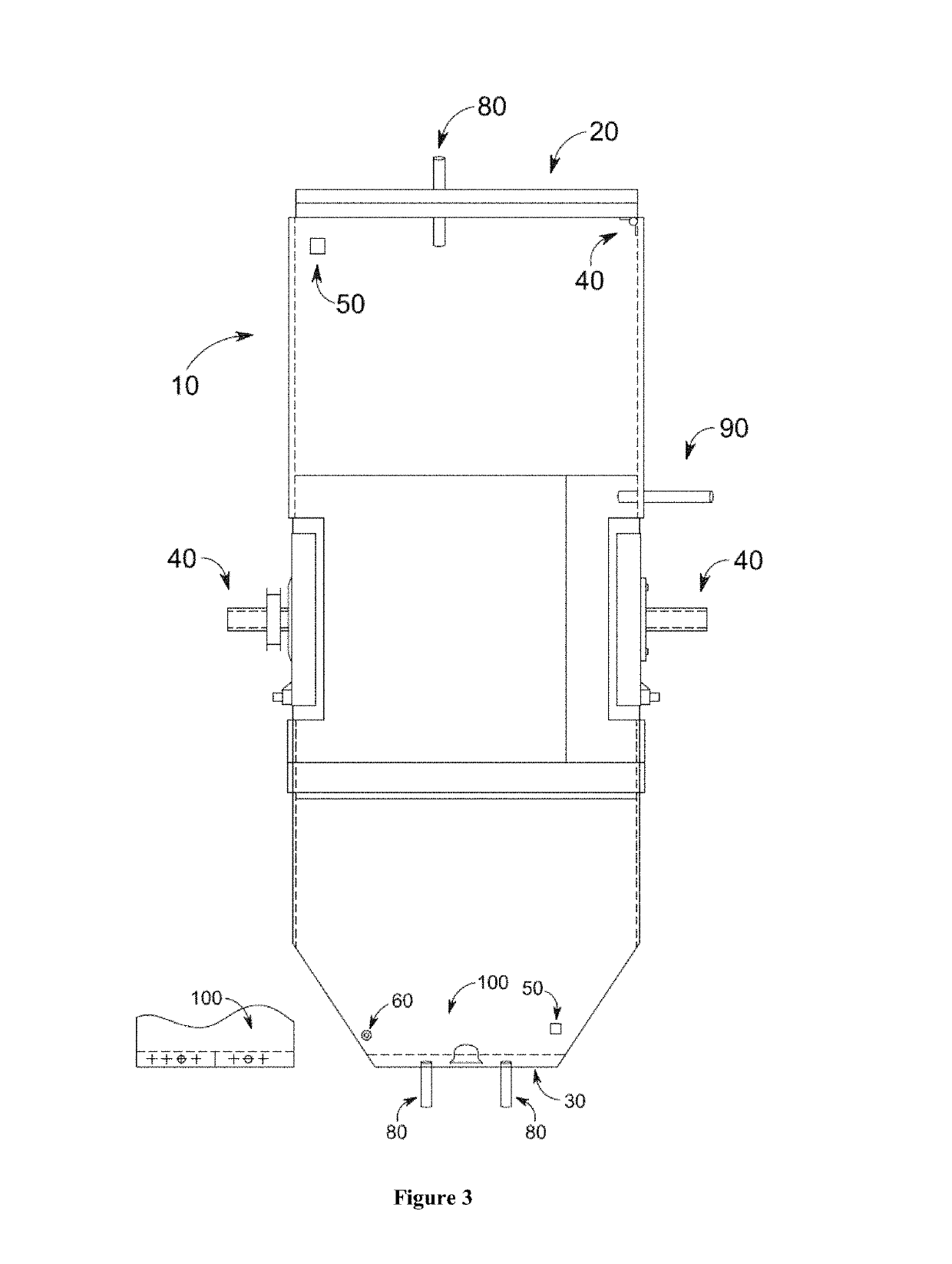Apparatus and method for thermally demanufacturing tires and other waste products
a technology of thermal demanufacturing and waste products, applied in the direction of gaseous fuels, chemical/physical/physico-chemical stationary reactors, domestic applications, etc., can solve the problem that the combustion of these materials can produce harmful gases
- Summary
- Abstract
- Description
- Claims
- Application Information
AI Technical Summary
Benefits of technology
Problems solved by technology
Method used
Image
Examples
examples
[0137]The present invention will be better understood with reference to the following non-limiting example.
[0138]FIG. 2 is a schematic illustration of one embodiment of the retort chamber described herein. The retort chamber (10) includes a top (20), a bottom (30), a hinge (40) at the top and / or the bottom, to enable the user to insert material to be thermally depolymerized and / or to remove inorganic material and other remnants which remain following the thermal depolymerization process, temperature sensors (50) near the top, near the bottom, and between the top and the bottom of the retort chamber, a carriage (60) for receiving a burner (70), two inlet ports (80) near the bottom of the retort chamber, and one inlet port (80) near the top of the retort chamber, and an outlet port (90) between the top and the bottom of the retort chamber. Along the bottom, in line with and above the burner, is a register (100). The material to be thermally depolymerized overlies the register.
[0139]In...
PUM
| Property | Measurement | Unit |
|---|---|---|
| temperature | aaaaa | aaaaa |
| temperature | aaaaa | aaaaa |
| temperature | aaaaa | aaaaa |
Abstract
Description
Claims
Application Information
 Login to View More
Login to View More - R&D
- Intellectual Property
- Life Sciences
- Materials
- Tech Scout
- Unparalleled Data Quality
- Higher Quality Content
- 60% Fewer Hallucinations
Browse by: Latest US Patents, China's latest patents, Technical Efficacy Thesaurus, Application Domain, Technology Topic, Popular Technical Reports.
© 2025 PatSnap. All rights reserved.Legal|Privacy policy|Modern Slavery Act Transparency Statement|Sitemap|About US| Contact US: help@patsnap.com



